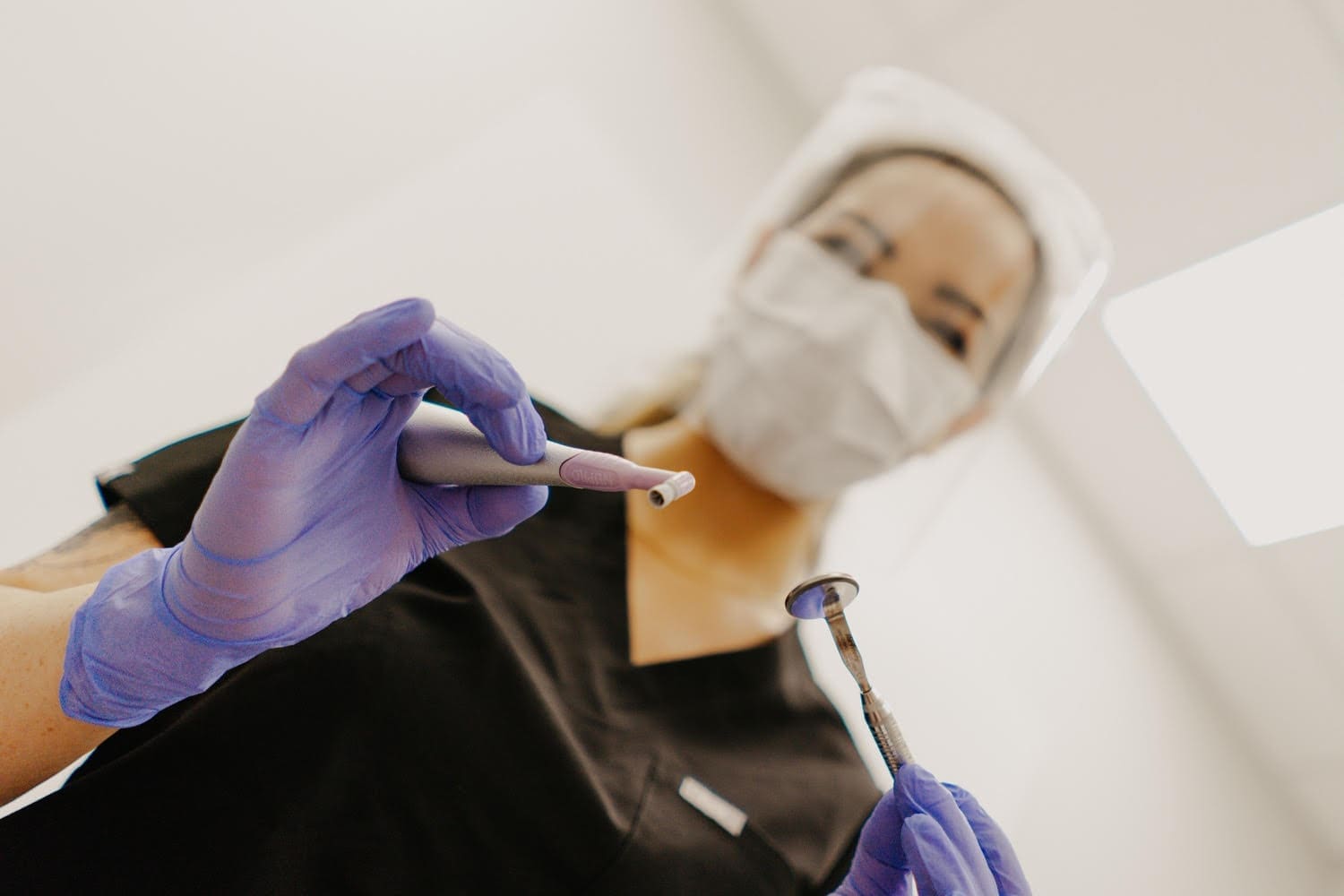Are you having a hard time controlling Diabetes (Hyperglycemia) even along with medication?
Have you visited your dental hygiene clinic recently?
Numerous studies suggest that there is a negative connection between Diabetes (Hyperglycemia) and uncontrolled periodontal disease.
Patients with diabetes have an increased risk of getting periodontal disease and inflammation caused by periodontal disease negatively affects glycaemic levels.
According to multiple clinical research, one in five cases of tooth loss due to periodontal
disease, is linked to diabetes.
Maintaining oral and Periodontal health is an integral component in diabetes management.
Treating and maintaining periodontal (oral) health is associated with glycaemic levels – HbA1c
reduction. Active periodontitis can be one of the reason hard to manage diabetes and high HbA1c levels.
Numerous clinical research indicates that some diabetic patients with uncontrolled periodontitis
(gum and bone disease around teeth) have difficulty managing their glycemic levels (HbA1c).
Before you consider adding even one more medication to your existing medications as per several types of research and data it is highly recommended to seek professional help with your dental hygienist for a thorough periodontal assessment and dental hygiene (periodontal maintenance).
As a renowned dentist in Edmonton, we at Clean Smiles recommend regular dental checkups for our patients.
Come and see one of our well-trained Registered Dental Hygienists for a periodontal screening
and dental hygiene treatment plan for professional periodontal maintenance.
We Provide customized analysis and care to our patients as per their needs to control and maintain periodontal disease.
According to clinical research, one in five cases of tooth loss due to periodontal disease, is
linked to diabetes.
What is Periodontitis?
Periodontitis is a term collectively used for common oral diseases. They usually include
gingivitis (inflammation of the gingiva) and periodontitis (inflammation that results in alveolar
bone resorption and tissue destruction).
Gingivitis is reversible with good oral health. When you visit the dental hygiene clinic, your
dentist will clean the teeth and gums and prescribe some medicines.
Most importantly, you will need to take your oral hygiene seriously and ensure you have good oral health habits.
You may need to avoid some foods that cause health problems, especially if you are diabetic.
Periodontitis on the other hand is a slowly progressing destruction of tissue.
It is usually asymptomatic and not painful.
Therefore, patients are usually unaware of the problem until it has progressed enough to cause tooth mobility.
Edema, bleeding gums, gingival regression, drifting teeth, tooth mobility, suppuration of
periodontal pockets, and gingival erythema are characteristics of advanced periodontitis.
As one of the best dentists in Edmonton, we notice that most patients come to us after the
condition has progressed.
Timely visits are important to prevent major damage to the teeth, gums, and bone structure.
Symptoms of Periodontitis
The symptoms vary with the stage of the condition. Generally, the symptoms include the following:
- Bad breath
- Bleeding gums when brushing or flossing
- Foul taste in the mouth
- The inflammatory response in the body
- Loose teeth or changes in position
- Pain while chewing
- Receding gums
- Render, swollen, or red gums
- Tooth loss
It is important to emphasize that symptoms of periodontitis are not noticeable in the early stages. Your dental hygienist will be able to point them out. Therefore, timely visits to a dental hygiene clinic are highly recommended.
The Effect of Periodontitis on Diabetes
The relationship between periodontitis and diabetes is two ways. Diabetes is not always the risk factor for periodontitis; sometimes, its the other way around. Periodontitis can harm glycaemic control. Research shows that severe periodontitis is the baseline for risk of associated poor glycaemic control.
It is a fact that type diabetes 2 increases the risks of periodontitis. A person with diabetes is three times more prone to this than a normal person. An adult with levels of HbA1C is 9% have a higher risk of periodontitis.
Prevent /or Treat Periodontitis is adjunctive therapy to manage Diabetes.
Visit Our Edmonton Dental Hygiene Clinic!
The best way to prevent periodontitis is to practice good oral hygiene at home on daily basis and regular visits to your dentist and dental hygienist. Here’s how visiting the dental hygiene clinic would help and why regular visits to your dentist in edmonton or near you are highly recommended:
Good oral hygiene – You need to brush your teeth for at least two minutes at least twice daily (i.e., morning and night). Floss once a day at least. Flossing loosens food particles and the bacteria present. Brushing helps remove favorable conditions for the bacteria to cause periodontal diseases. When you visit clean smiles dental hygiene clinic, our well trained and experienced hygienists and dentist can guide you with some additional recommendations and tips.
Regular dental visits – Seeing the dental hygienist and dentist once every 6-12 months reduces the risk of developing periodontal diseases. Timely treatments help keep your teeth healthy for much longer, ideally for life time. As per many of our patient’s feed back, Dr. Haider has been complimented as the best Dentist in Edmonton. Our dentist in Edmonton provide client centered dental services that are prevention based.
Get started with your oral hygiene by visiting us at Clean Smiles Dental Hygienic Clinic. Call or Text to schedule your appointment today 780 800 6655.



